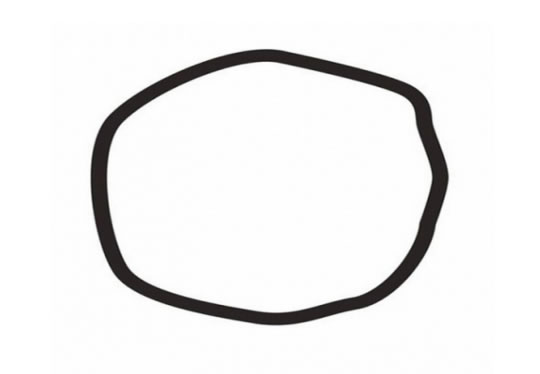
If pushed to choose, would you say this image contains a circle or not?
People who tend towards saying the shape above is a circle are generally more liberal, a new study finds.
People in the study who tended to say this was a circle were also:
- for the legalisation of cannabis,
- for gay marriage,
- for a government-funded welfare state.
Those who said the shape above was not a circle tended to be more politically conservative.
Naturally, they were also more likely to be for strengthening drug laws and ‘small’ government.
For the study people were shown all sorts of geometric shapes, not just circles.
Some of the shapes were perfect squares, circles or rectangles, some were not.
The idea is to test how much people tolerate differences from the norm.
People who are more tolerant of the difference between the shape above and a circle are more likely to accept deviance in society and in others.
Those who are stricter about geometry are also stricter about other people.
The authors explain their findings:
“More conservative participants reported greater differentiation between perfect and imperfect shapes than more liberal participants, indicating greater sensitivity to deviance.”
Negativity bias
Here’s another way of looking at it.
One theory has it that the difference between being liberal and conservative could be down to a negativity bias.
As I explained in a previous article:
“Our position on the political spectrum — right, left or centrist — could be down to a deep-seated psychological bias in the way people think about the world.
That’s according to new research published in the journal Behavioral and Brain Sciences, which tested reactions to viewing negative stimuli, like people eating worms or maggot-infested wounds.
The study found that the more conservative people’s politics was, the more intense their reaction to these pictures.
This finding, combined with other research from around the world, suggests our so-called ‘negativity bias’ — an automatic orientation towards negative aspects of our environments — may be at the heart of our place on the political spectrum.”
So, returning to the (alleged?) circle, if you see it as not a circle then it’s because the imperfections stand out to you.
If you see it as a circle then it’s because the imperfections don’t stand out so much to you.
No one is saying one way or the other is correct (be quiet geometricians!) — we are all built differently.
That’s one of the fascinations of psychology.
The study was published in the Journal of Personality and Social Psychology (Okimoto & Gromet et al., 2015).




